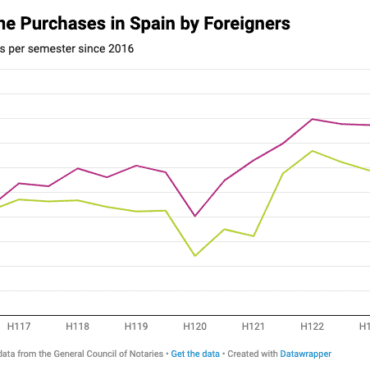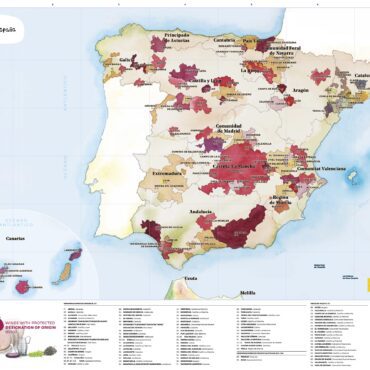-
 play_arrow
play_arrow
BayRadio Listen Live Broadcasting in Spain


In March of this year, the culmination of extensive negotiations led to the successful passing of the groundbreaking Animal Welfare Law, designated as Law 7/2023. Among its innovative provisions, a significant stipulation has emerged, mandating all dog owners to acquire public liability insurance for their beloved pets. This obligation is set to take effect on September 29, 2023, signifying a remarkable step forward in ensuring pet well-being.
Article 30 of this progressive legislation expressly dictates that dog owners must secure and maintain civil liability insurance coverage to address potential third-party damages throughout their pets’ lives. This comprehensive coverage not only encompasses harm caused by the dog but also includes those responsible for the pet’s actions. The objective is to establish financial safeguards capable of handling any resulting expenses.
Although mandatory dog insurance is already in place in various regions such as Madrid, the Basque Country, and La Rioja, it’s just one facet of the array of new regulations introduced. These encompass a mandatory training course for dog owners, a ban on the sale of most animals in pet stores, and stricter penalties aimed at individuals who subject animals to neglect or abuse.
Spain’s reputation as a nation of fervent animal enthusiasts is well-founded, with nearly three out of every ten households sharing their homes with canine companions. However, the rising costs associated with pet care, including overall well-being, nutrition, and veterinary care, have made pets increasingly expensive to maintain. Presently, around 9.3 million dogs call Spain home, yet only 3 percent of them are covered by insurance – a notably modest percentage compared to some neighboring European countries. To put this into perspective, the United Kingdom boasts insurance coverage for 28 percent of its 10.1 million canine residents.
This proactive approach not only contributes to the welfare of dogs but also proves financially prudent. For instance, the Royal Canine Society of Spain (RSCE) estimates an annual expenditure of approximately 300 euros on the healthcare needs of each dog.
The financial implications of canine insurance vary, depending on the comprehensiveness of coverage. Certain policies, particularly those tailored for breeds with specific handling requirements (formerly classified as high-risk breeds), may entail higher costs. As a general benchmark, basic packages typically start around 24 euros annually, while more comprehensive options extend to approximately 90 euros.
The scope of coverage within these policies is impressive, often reaching limits of up to 200,000 euros. This comprehensive umbrella may even include additional benefits, such as discounted veterinary treatments or provisions for kennel stays in the event the owner requires hospitalization.
It’s worth noting that individuals with existing home insurance policies might already have some degree of coverage for their pets. However, come September, a pivotal adjustment will be necessary – dogs must be formally included within the insurance framework using their microchip identification. It’s important to highlight that typically, a single pet is covered per policy.
The new legal framework also outlines penalties for non-compliance with the insurance mandate. Failure to obtain public liability insurance for one’s dog is likely to result in a cautionary response from authorities. While most instances of non-compliance are considered minor infractions as long as no harm befalls the animal, more serious cases, including lack of insurance, could lead to fines ranging from 500 to 10,000 euros. This underscores the importance of responsible pet ownership.
Written by: BayRadio News
Similar posts
Recent Posts
- Robotic Surgery for Prostate Cancer: What Is Radical Prostatectomy and How Does the Da Vinci Robot Improve It
- What Is Fibromyalgia? Symptoms and Treatments of an Invisible Illness That Requires Specialized Attention
- AMASVISTA Glass: 10 reasons to choose SUNFLEX glass curtains
- Robotic Surgery, Immunotherapy and Comprehensive Care Take Centre Stage at Pancreatic Cancer Conference at Quirónsalud Torrevieja
- Robotic Surgery Against Ovarian Cancer: Greater Precision, Less Pain and Faster Recovery

Ctra. Cabo La Nao, CC La Nao, Local 6 03730 Javea, Alicante, Spain
Advertise with us
Do you have a business in Spain? Do you provide a service to the expat community in Spain? Would you like your message to reach over 500.000 people on a weekly basis?
BayRadio is a community orientated radio station offering fantastic content to our many listeners and followers across our various platforms. Contact us now and find out what Bay can do for you!
Our business is helping your business grow.
BAY RADIO S.L. © 2024. ALL RIGHTS RESERVED. WEB DESIGN BY MEDIANIC







